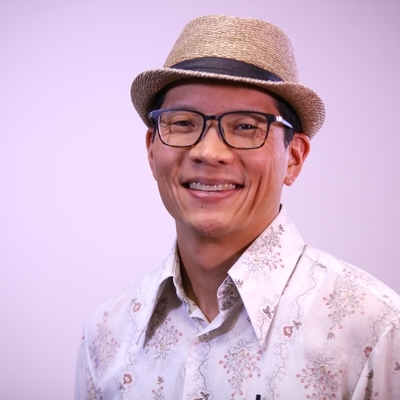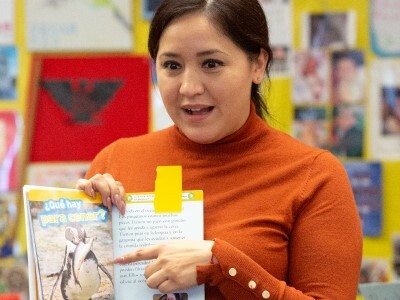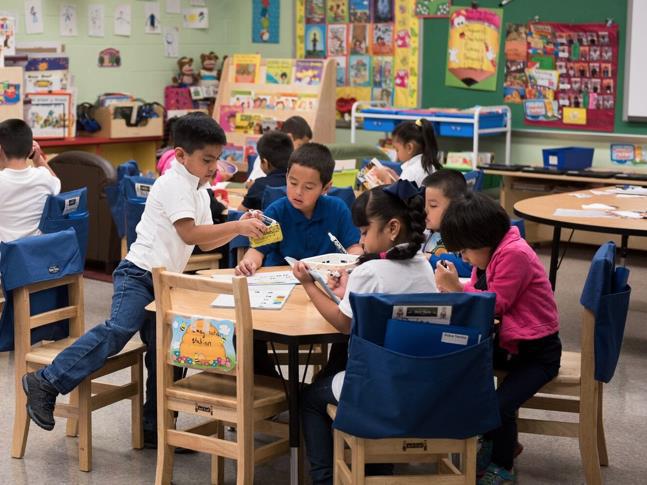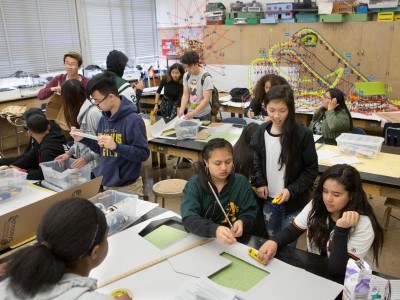How I Was Raised as a Teacher
Topics
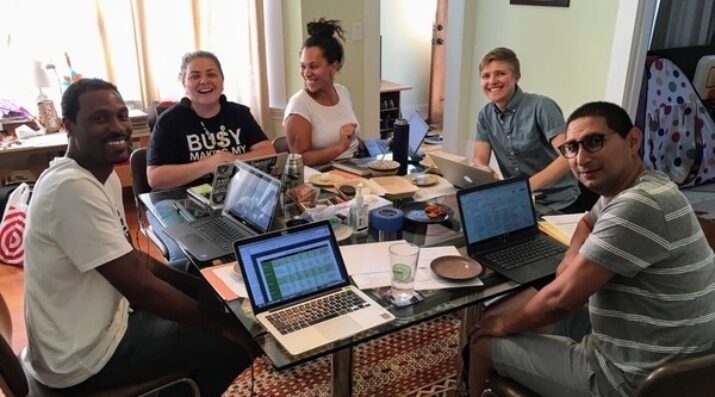
When educators design and create new schools, and live next gen learning themselves, they take the lead in growing next gen learning across the nation. Other educators don’t simply follow and adopt; next gen learning depends on personal and community agency—the will to own the change, fueled by the desire to learn from and with others. Networks and policy play important roles in enabling grassroots approaches to change.
New and aspiring teachers—and their students—would be better served with extensive coaching, mentoring, and co-teaching alongside experienced, competent, veteran teachers.
This is a moment when thousands of parents across the country are getting their chance to learn firsthand about the skills, knowledge, and habits needed to educate their children at home. Learning to teach well to 30 children of varying levels for multiple hours a day is an immense challenge that requires lots of training and practice not unlike learning to fly a modern plane. Could we expect a person, who previously only flew propeller planes, to operate the complex cockpit of a modern jet without proper training? No, but we still somehow expect teachers to reach peak performance without proper preparation.
Entering into a profession can be seen as a process of acculturating to a new set of beliefs and behaviors expected in that field. Teaching, though it lacks the same rigorous training and certification process of other professions, does indeed have its own vocabulary, foundational knowledge, skills, and beliefs. My own journey to develop as a professional educator was short on preparation and full of learning-while-flying-the-plane. Unfortunately, it caused damage to families and students that could have been avoided if I was prepared in a different way.
In my pre-service program at Teachers College, I took many courses taught by professors who lectured us in the same didactic ways that many of us probably learned in school. I knew that filling out worksheets and memorizing rotely were outdated practices, which were based on the belief that students are empty vessels needing to be filled by the wisdom of experts. These practices would be insufficient in preparing students for the information age and 21st-century skills, but they were all I knew and too often what I encountered in my coursework at Teachers College. How could I be expected to teach the future using a playbook from the past?
It was only in my teaching methods course, facilitated by a practicing classroom teacher, that I had the chance to experiment with more engaging forms of instruction. I still remember (over 20 years ago) designing a unit where high school students would use primary sources from the American Revolution to tell the story of the founding of this country through the eyes of indentured servants, women, free blacks, and enslaved blacks. Students were to create and illustrate a children’s book to read to elementary school students.
Even though I earned a master's degree from one of the most prestigious teaching institutions in the country, I really learned to teach during my first year of teaching.
Though the course represented less than 10 percent of my required course units, it was the foundation that I leaned on throughout my time in the classroom. It exposed me to foundational beliefs and behaviors of the teaching profession—that learning should be rigorous and engaging and that curriculum is planned backwards from outcomes and final performance tasks. Even though I earned a master's degree from one of the most prestigious teaching institutions in the country, I really learned to teach during my first year of teaching.
The staff at Vanguard High School in New York City in 1999 was simply phenomenal. I learned from direct coaching and from observing veteran teachers. I was the 9th grade humanities teacher and collaborated closely with the math and science teacher who taught all of the same students as I did. The school was part of the NY Performance Standards Consortium and students were expected to give oral presentations and other authentic demonstrations of knowledge regularly. Instead of only sitting in the lecture halls at Teachers College, more of my master’s program should have occurred in the classrooms and hallways of a school like Vanguard and under the tutelage of its educators.
For personal reasons, I left New York City and spent the next nine years with Big Picture Learning, teaching four years at the Met Center in Providence, Rhode Island, and then five years at MetWest in Oakland, California. During that time, I watched students present quarterly, observing thousands of presentations over my tenure. While students demonstrated their learning, I was learning about student demonstrations—how to design presentation agendas so that students could demonstrate their knowledge, how to use rubrics for scoring, how to calibrate for quality, and how to leverage authentic audiences. I was learning by doing and the environment of the school was my professional incubator.
If becoming a teacher for the 21st century is like learning to fly a modern jet, then my preparation consisted of my own time as a passenger watching others fly a propeller plane and of lectures about the function of the buttons in a modern cockpit. My first year of teaching, I relied heavily on that one pre-service methods course and when I was losing altitude, I reached out to more experienced educators who would show me how things actually work. Over the years, I was lucky to work in mature schools where veteran educators could teach me how to keep the plane flying smoothly; it was a slow process that took far too long. It would have been better yet if these kinds of experiences were institutionalized for all new teachers. Instead of depending on luck or circumstance to make sure teachers can fly a modern plane, pre-service programs could give aspiring teachers the chance to practice flying alongside those with demonstrated competence in the cockpit.
Given how much I have learned from veteran educators, I am a strong proponent of the teacher residency approach, in which an aspiring educator spends at least a year working alongside a mentor teacher. Unlike a typical pre-service program in which student teachers teach one short unit over the course of an entire year, a residency program asks more of and gives more to its participants. Residents spend more time observing and teaching in classrooms and receive much more extensive coaching support from a master teacher.
Earlier this year, the governor of California included a teacher residency program in his budget announcement. I was excited for the future of teaching and learning in the state where I currently work. The COVID crisis is wreaking havoc in so many ways, but I can only hope that this program survives the budget cuts and changes in our education system that are sure to follow in COVID’s wake.
Photo at top courtesy of Young Whan Choi.

